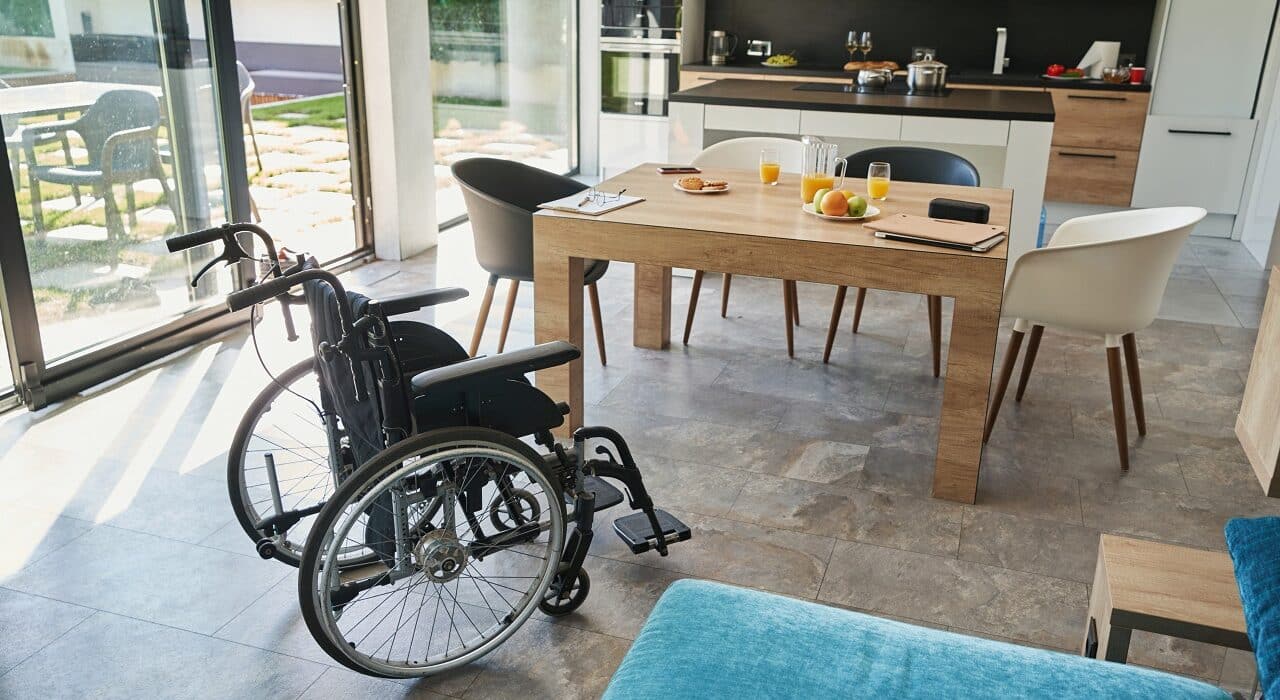As individuals with disabilities strive for independence and a fulfilling lifestyle, a well-adapted living environment plays a crucial role in enabling them to achieve their goals. At the heart of creating a safe and accessible home lies home modifications—thoughtfully designed changes to existing homes that improve functionality, access, and comfort for people with disabilities. As NDIS service providers in Sydney, our mission is to guide you in understanding, accessing, and implementing the necessary modifications to enhance your home and foster a greater sense of autonomy.
In this definitive guide, we’ll explore the various aspects of home modifications for NDIS participants, delving into the possibilities, benefits, and strategies to ensure the best outcomes for your unique living situation. We will cover the types of home modifications supported by the NDIS, offering insights on how you can secure funding and streamline implementation to transform your living space. Moreover, we’ll discuss the necessity of collaborating with experienced professionals, tapping into their expertise and knowledge to maximise the effectiveness of your home modifications.
Venture into the world of NDIS home modifications and discover how these vital changes can unlock newfound independence, safety, and accessibility within your own home. As your trusted ally, we are always here to support and guide you throughout this empowering process, ensuring you have the resources and information to make informed decisions and create your ideal living environment.
Types of Home Modifications Supported by the NDIS
The NDIS recognises the critical role home modifications play in improving the quality of life for people with disabilities and supports various modifications tailored to individual needs. These may include:
- Structural changes: Alterations to the physical layout of your home, such as widening doorways, levelling floors, installing ramps, or modifying bathrooms and kitchens for enhanced accessibility.
- Safety features: Enhancements designed to improve safety and prevent injuries, such as installing grab bars, non-slip flooring, and visual or audible alarms.
- Assistive technology: Innovative solutions and devices to facilitate more independent living, including stairlifts, wheelchair lifts, and smart home technology for controlling lighting or appliances.
- Environmental modifications: Adjustments to heating, cooling, and ventilation systems that cater to the specific needs of individuals with disabilities.
These modifications collectively contribute to a more functional, comfortable, and secure home environment for NDIS participants.
Securing NDIS Funding for Home Modifications
To access the necessary funding for home modifications through the NDIS, it’s essential to understand the process and comply with the relevant requirements. Follow these steps to secure funding:
- Assess your needs: Determine the specific home modifications that will best address your daily living challenges and improve your overall quality of life.
- Gather professional input: Consult with your treating healthcare professionals, occupational therapists, or other specialists to better understand the modifications that will best meet your needs.
- Develop evidence: Compile relevant documentation that outlines your disability, the proposed home modifications, and the direct benefits they will provide in relation to your daily living activities.
- Include modifications in your NDIS plan: Clearly outline the desired home modifications in your NDIS plan, discussing their importance and justifying their inclusion through the support of your treating professionals and gathered evidence.
- Collaborate with your NDIS planning coordinator: Work closely with your NDIS planner or Local Area Coordinator (LAC) to ensure the proposed modifications adhere to NDIS guidelines and qualify for funding.
Identifying and Selecting Qualified Home Modification Professionals
Selecting knowledgeable professionals to assist in the planning, design, and installation of home modifications is crucial for achieving the best results. When searching for a suitable professional, consider the following steps:
- Research: Investigate local service providers who specialise in home modifications for people with disabilities, taking note of their qualifications, experience, and reviews.
- Seek recommendations: Speak with your treating professionals or NDIS planner for referrals to reputable home modification professionals.
- Check for NDIS affiliation: Ensure your chosen professional is a registered NDIS provider or works with NDIS participants, as this can make the funding and approval process smoother.
- Schedule consultations: Meet with potential home modification providers to discuss your needs, evaluate their approach, and obtain a clear understanding of their expertise.
- Compare quotes: Seek detailed quotes from multiple providers, considering their experience, proposed methods, materials, and pricing.
Key Considerations When Planning Home Modifications
When planning your NDIS home modifications, bear in mind these key considerations to maximise your investment and ensure optimal outcomes:
- Future-proofing: Anticipate your future needs and consider how your disability may evolve over time so that your home modifications remain effective and practical in the long term.
- Adhering to building codes and regulations: Consult with local building authorities to ensure your planned modifications comply with any relevant building codes and regulations.
- Aesthetics and home value: Strive for a balance between functionality and aesthetics, opting for modifications that not only cater to your needs but also maintain or enhance the value of your property.
- Sustainability and energy efficiency: Where possible, incorporate sustainable and energy-efficient elements into your home modifications, helping to create a more environmentally friendly living space.
Conclusion
Home modifications hold the key to unlocking a more accessible, comfortable, and independent life for NDIS participants. Armed with the funding opportunities provided by the NDIS and the guidance of experienced professionals, you can transform your home into a sanctuary that nurtures your well-being and fosters your personal growth.
Take the first step towards your ideal living environment by reaching out to ADACSS today. Our unwavering commitment to support and empowerment will ensure a smooth and rewarding journey as you navigate your way through the world of NDIS home modifications, propelling you towards a brighter, more self-sufficient future.



